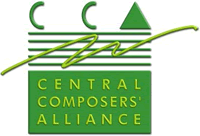Education: Philip G Joy is largely self-taught, having been educated at Merton College, Oxford (1985-89) where he had lessons from Robert Sherlaw-Johnson and Bernard Rose and at the Royal Academy of Music (1990) where his composition teacher was Paul Patterson. He also studied postgraduate cello at the RAM before being trained in Secondary Music and he was Director of Music at Twyford School from 1991-96 before entering the Baptist Ministry. Since 2003 he has been retired from ministry due to M.E. and has devoted his time to composition. Aesthetic: Philip, who deliberately makes his home in the European ´Classical´ tradition, writes in a neo-tonal style with an emphasis on lyricism. Though no stranger to suffering, and for theological reasons, Philip does not believe art should be ugly; rather he aspires to an aesthetic of beauty. Performed works: Discourse for Harp, Violin and Cello (Lyddington 2004, Turner Ensemble) Introduction and Call of Samuel commissioned by the Barkham Quartet and performed on their South of England concert schedule (2005) Trio for Harp, Violin and Cello (Brentwood Cathedral, 2007, Turner Ensemble) Hesychia for orchestra and soprano, (The Pulham Orchestra, 2008) Ex Libris Aureis, (in memory of Robin Golding, Lavenham Sinfonia 2011) Seeking Stillness for solo cello (performed by himself in a concert of unaccompanied cello music, Buttsbury Church 2012) An Easily Associated Symphony (forthcoming 2013) for the Wymondham Youth Orchestra. Works Awaiting Performance: Variations on a Crowd for large Wind Orchestra, Et Incarnatus for String orchestra, Retro Variations for Cello and small orchestra, Mozart Balls for Violin and Viola Duo, Melisma for String Quartet, Song with Words for Cello and Harp, Three Pieces for Intermediate Strings for 2 Violins, Viola and Harp, Words for SATB and piano, There is No-One Like the God of Jeshurun - anthem for SATB and organ, Phos Hilaron and a responsorial setting of Psalm 98 for SA/Men, Congregation and Organ. Works in preparation: Four Keats Songs (for soprano Jackie Pittman), Where Can Wisdom be Found? (for the Southend Girls’ Choir) Jesus Wept (for Dunblane Chamber Orchestra) Philip also aspires to write an oratorio based on the English Mystical work The Cloud of Unknowing
|

|
Features
CCA Composer of the Month – FEBRUARY 2014
Philip G Joy is our 15th CCA Composer of the Month in a series in which you will learn more about each of our composers and hear music that they’ve chosen to represent their output. You will also find...
"ALL THESE NOTES" - preparing the ground for neo-tonal harmony
Here Philip Joy describes a seminal lecture by composer Robin Holloway which set new directions for his own writing.

